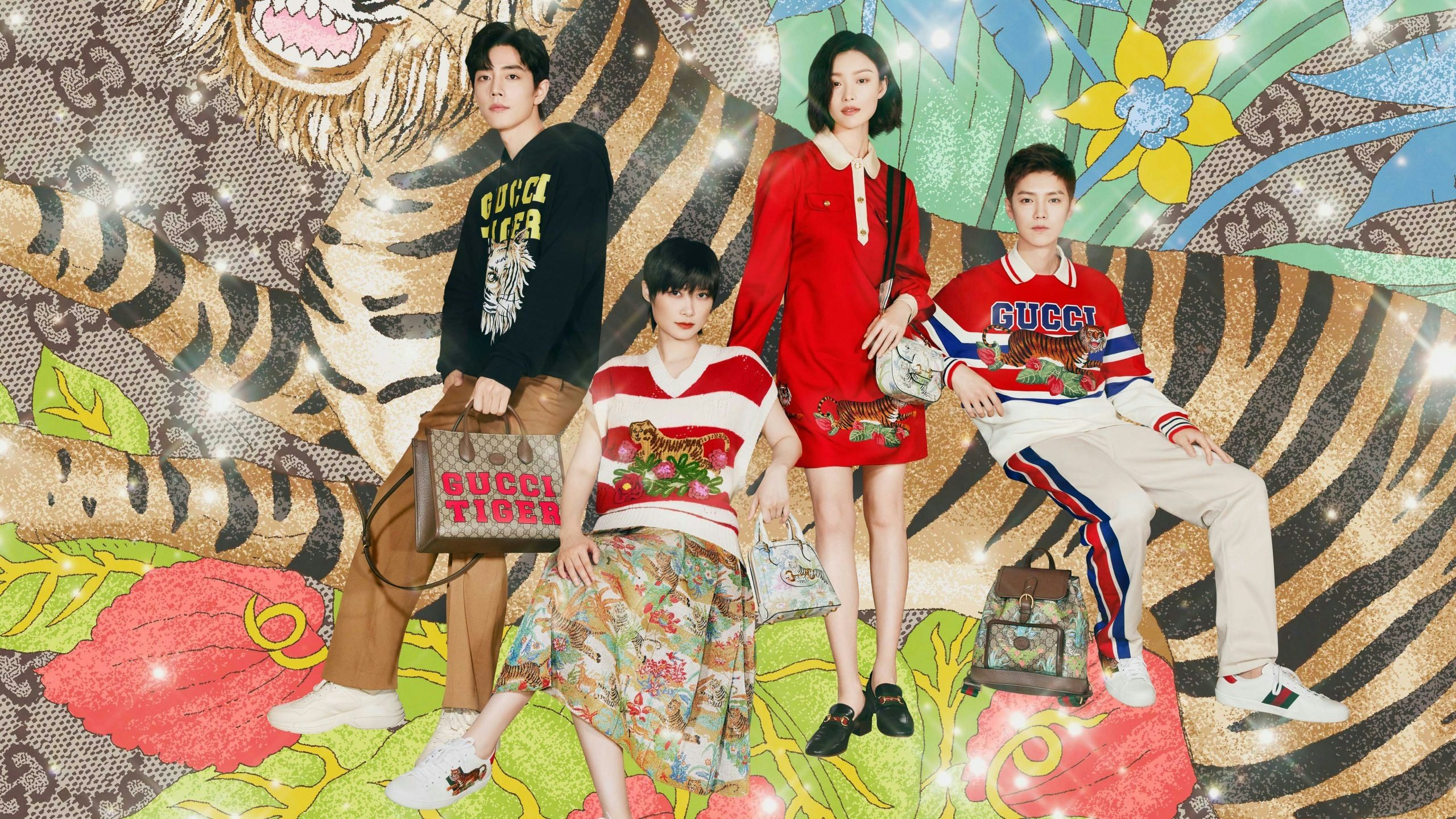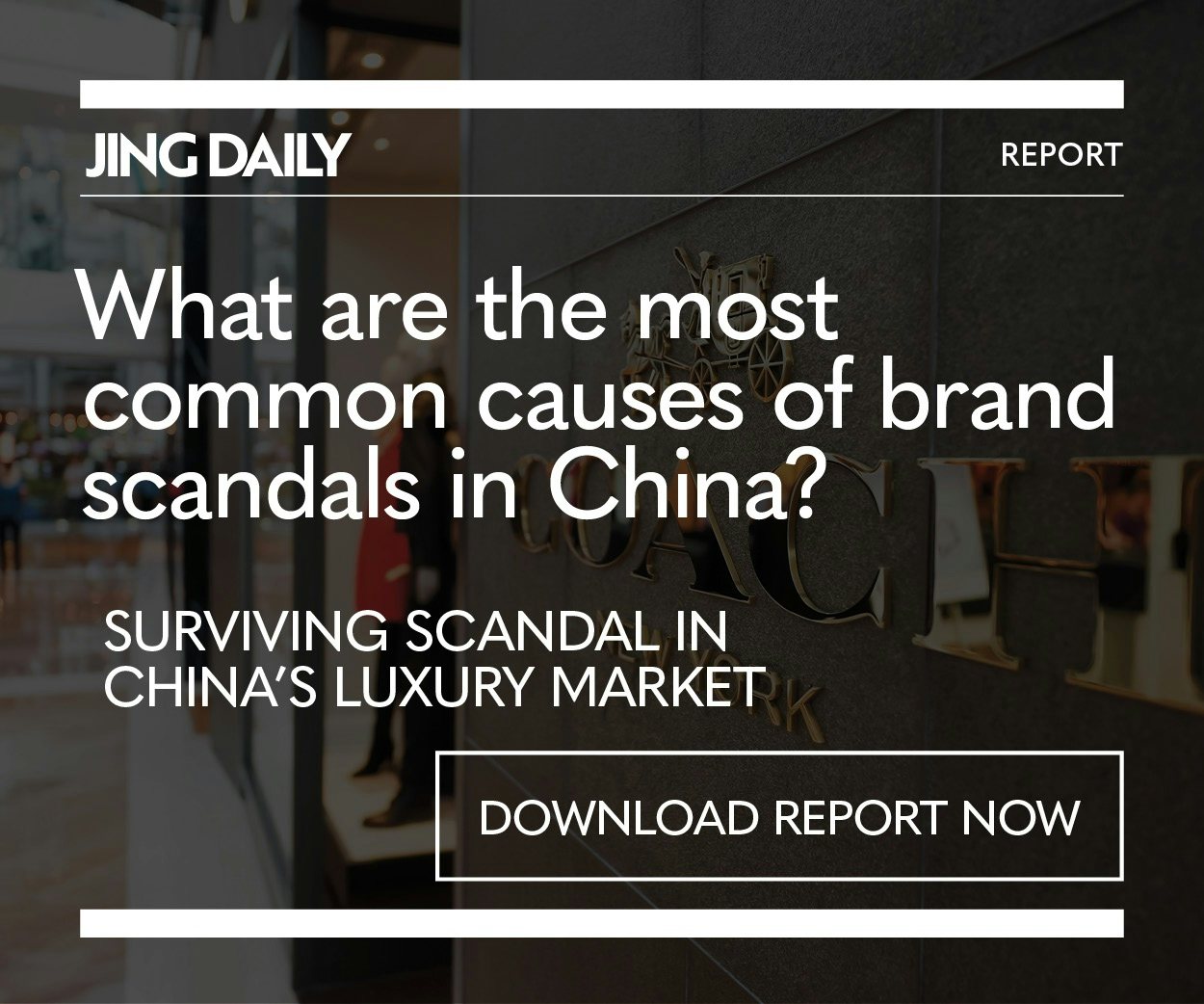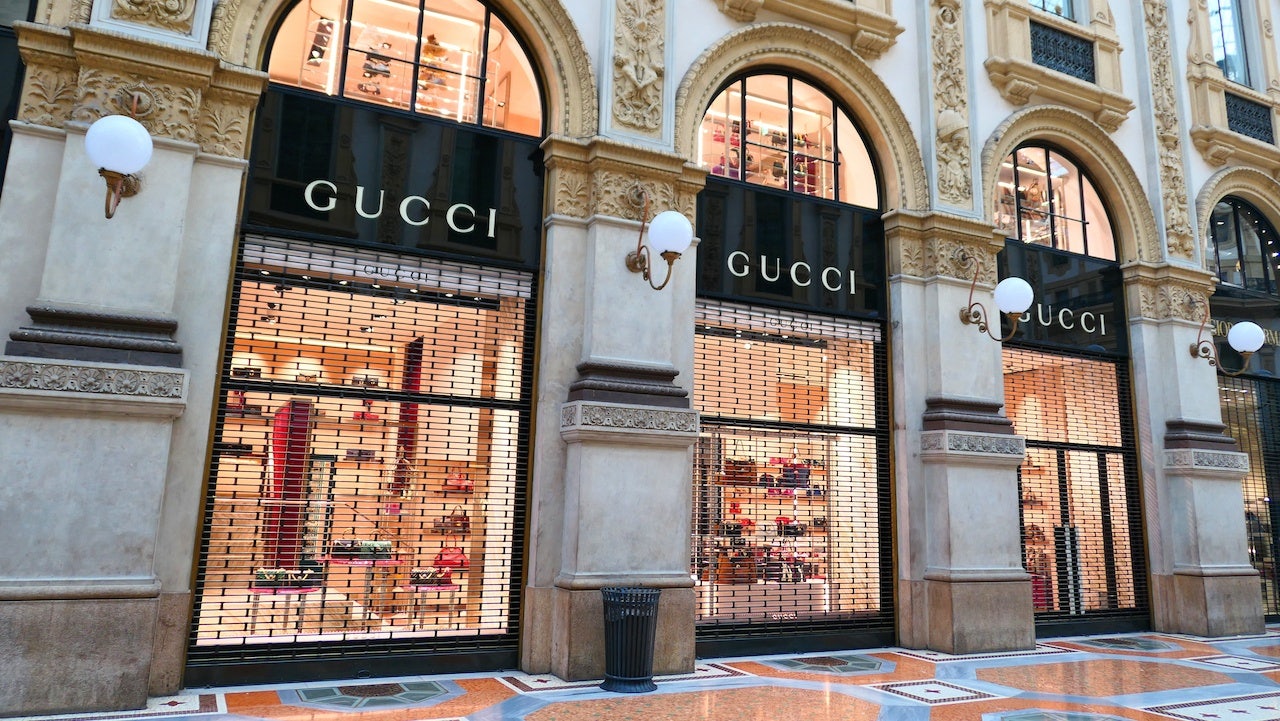Has China become overly important for Gucci? Although the Italian brand has seemingly cracked the code for keeping consumers engaged (and spending) while operating a relatively controversy-free operation in China, there are signs that complications could be on the horizon, counterintuitively due to too much success.
Under the leadership of chief executive Marco Bizzarri and creative director Alessandro Michele, Gucci has enjoyed a nearly decade-long boom with profits roughly quadrupling and revenue almost tripling between 2015 and 2019. After a disappointing, COVID-hit 2020 that crimped earnings, Gucci’s revenue jumped 31 percent in 2021, reaching €9.7 billion ($10.1 billion) and surpassing its pre-COVID 2019 revenue of €9.6 billion ($10 billion).
Reliably ranking as one of China’s favorite luxury brands, Gucci is also one of the most active in the Greater Chinese market, expertly employing collaborations, local ambassadors who are just a little off the beaten path, and clear brand storytelling. All of this has, over the past seven years, added up to outsized success that makes the brand far more exposed in China than its rivals. According to Barclays estimates, China accounts for around 35 percent of Gucci’s annual sales, compared to 27 percent of fashion and leather goods sales for LVMH and 26 percent for Hermès.

For parent company Kering, this China success has been both a blessing and a cause for concern, considering Gucci accounts for more than half of the group’s total revenue. At no point was Kering’s China vulnerability clearer than the first quarter of this year, when Gucci was hit by extended lockdowns that effectively shut down the country’s luxury hub of Shanghai. While Gucci maintained 13.4 percent growth in Q1 2022 compared to the same quarter last year, China’s lockdowns weighed down the brand on a global level, with earnings missing expectations by just below one percent.
Clearly, when China sneezes, Gucci catches a cold. Now, the China conundrum for Gucci and parent Kering is that the local brick-and-mortar and e-commerce market is arguably more important than ever. Outbound tourism (and the millions of shoppers it brought to Gucci stores in Japan, Europe, and North America, pre-COVID) is unlikely to recover until 2024, ensuring many, if not most, of China’s most active luxury shoppers will do more of their high-end shopping closer to home or online for another couple of years at least.
This means driving in-market sales will remain front-of-mind for Gucci even as Kering angles to increase revenue of other portfolio brands like Yves Saint Laurent and experiments with the world of crypto. Yet the possibility of more lockdowns in 2022 is far from the only China market obstacle facing Gucci and Kering in the second half of the year.

The Chinese government’s ongoing celebrity and influencer crackdown – which has ensnared some of the country’s top stars and livestreamers like Viya and Li Jiaqi – shows no sign of stopping, putting brands on the constant search for “safer” ambassadors who are less likely to attract unwanted attention or bad PR. And with the 20th Party Congress set to take place later this year, government censors and regulators are working overtime to catch and penalize any marketing messages that come even close to stepping over the Party line.
What all of this means is that Gucci needs a strong China plan that will help it bounce back from the recent wave of COVID lockdowns and weather an ongoing celebrity crackdown and more tightly regulated media environment in the remainder of the year.
To this end, Kering recently tapped former Tiffany veteran Laurent Cathala to run Gucci’s Greater China fashion operations, with Cathala expected to give local teams greater control of marketing and advertising efforts. The brand also split off its watches and jewelry business to be managed globally by corporate headquarters in Milan, in an effort to ensure consistency. Now the question is what Gucci’s more empowered local marketing and advertising team will cook up for China in the year ahead, and what other brands can learn from their efforts.

